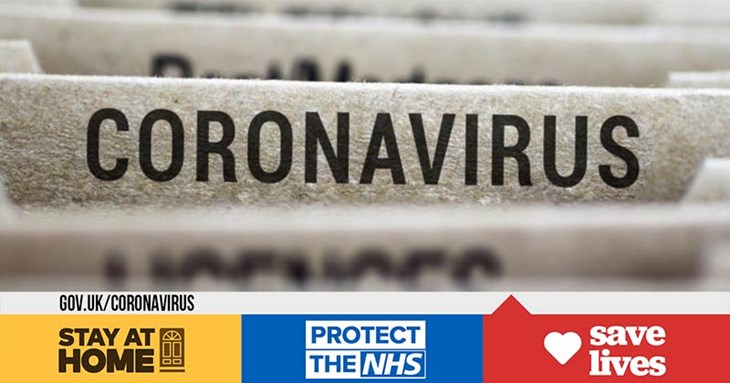The Coronavirus Act 2020: The impact on private landlords
Published: 1 May 2020

The introduction of the Coronavirus Act 2020 brings a few temporary changes to the way the private rented sector operates.
These include:
- Suspending all ongoing possession cases for 90 days from 27 March 2020.
- Extending repossession notice periods from two months to three months.
- Ensuring that lenders offer payment holidays, for up to three months, so that similar rent payment holidays can be passed to tenants who are financially impacted by the coronavirus.
- Pre-action protocols now apply to the private rented sector in the same way they apply to registered social landlords (introducing steps you must take before seeking a possession order).
The Government have published general guidance for landlords as well as specific information on obligations such as right to rent.
Landlords are encouraged to refer to the official coronavirus information, official government guidance and NHS guidance if they have any queries.
The current public health measures aim to limit the number of contacts between people. As a landlord you need to ensure that:
- You, or those working on your behalf, only visit your property if there is a serious health and safety issue that has to be addressed. During the visit everyone in the property should follow social distancing rules.
- If repairs are necessary you don’t attend with a tradesperson.
- You avoid physical viewings with prospective new tenants.
- Right to Rent checks are conducted electronically. There is further guidance here but you can record the electronic check as an adjusted check due to the pandemic.
- If a tenant moving in or out of your property is unavoidable that social distancing guidance is followed.
- You check if your tenant has been requested to shield. These people belong to a high risk group and have been advised to limit social contacts and careful thought needs to be given to the necessity for anyone to visit their home.
- If a tenant is unable to permit access to their home due to self-isolation ask them to email or text to document this.
- Works being carried out in homes of those who are self-isolating are due to a serious and direct threat to their safety.
- General property inspections and non-essential repairs are avoided unless there is a serious health and safety concern.
You still need to meet your legal obligations and ensure your tenant’s welfare but whilst observing social distancing measures (with consideration to confirmed COVID-19 cases and properties where shielding is taking place).
Make use of the two month window you have to arrange a gas safety check. For example if your gas safety certificate runs out on 1 August 2020, you can have a new check carried out any time after 1 June 2020 and be given a certificate which is valid until 1 August 2020.
You may experience issues securing a Gas Safe engineer or have a tenant who later has to self-isolate. The HSE have guidance for landlords on the Gas Safe website here.
If your tenant does move out there is government advice for the cleaning of environments in the community, which includes private rented accommodation.
If you aware that your tenant is vulnerable Exeter Community Wellbeing can offer help and support. There are online and telephone hotlines. Call 01392 265000 (Mon-Fri 9am to 5pm, Sat-Sun 9am to 12pm) or click here.
We are encouraging local landlords and tenants to have open communication with their tenants at these difficult times. Both parties may be experiencing financial hardship and good communication can ensure tenants and landlords can work together to ensure both sides can find a mutually beneficial agreement. Further to this make sure you have a written record of any changes to the tenancy that you agree with your tenant.
A note from Exeter University
“Exeter’s private landlords play a critical role in contributing to a student’s experience of their time in Exeter, with many alumni fondly remembering the time they spent living in private housing and the lifelong friendships they made.
Students have long since been the mainstay in a sometimes unpredictable housing rental market. The 2018 NUS and UNIPOL accommodation cost survey showed that an average of 73% of the maximum student finance maintenance loan is spent on accommodation. In addition to this many students are not eligible for the maximum loan and rely on their parents and/or part time work to help meet their living costs.
These are exceptional times and no one has been left untouched as a result of the COVID19 Pandemic. Landlords are under no legal obligation to release tenants from their contracts, or to negotiate reduced rent payments. However, depending on an individual landlord’s circumstances, there may be measures you can take to support your student tenants e.g.passing on reduced property costs or mortgage lender payment holidays”.
